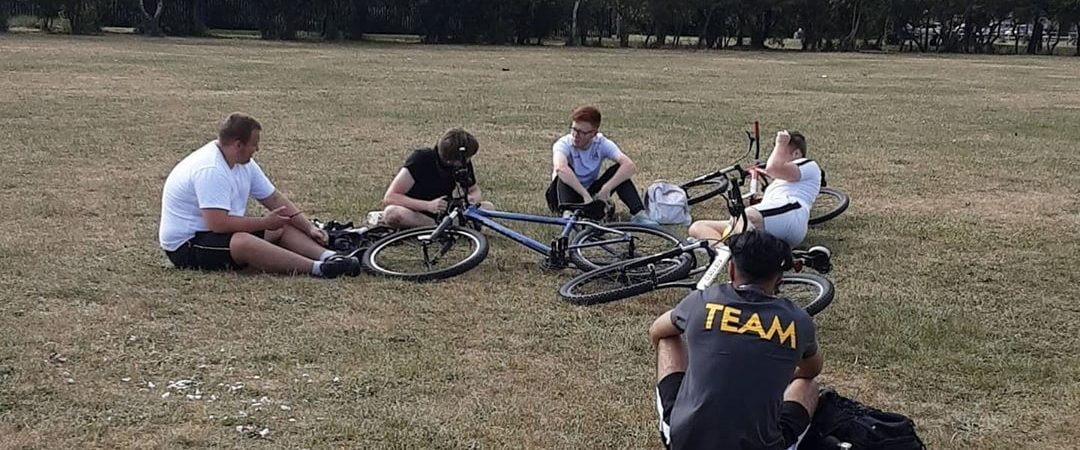Lifeline’s youth work team–collectively known as SW!TCH–works with young people who are at risk of being excluded from mainstream schooling, of having poor mental health, or of being involved in Serious Youth Violence. Traditionally, this takes place both in schools through mentoring and in the community through a programme of positive activities. However, in this ‘new normal’, schools have been closed and social distancing makes most communal activities unsustainable.
But, like we heard last time, our team aren’t content to just sit back and wait for lockdown to end – we’ve been working hard to come up with new ways we can connect with young people in these less-than-favourable conditions.


Mentoring
The young people we mentor have come to us through referrals from schools across the East London boroughs we coordinate with, with one-to-one sessions carried out during their time at school.
The ability to talk with the young person face-to-face is at the heart of our mentoring – with schools closed, we’ve strived to continue this personal touch as much as possible. We’ve not only been using the obvious solution of video calling though; we’ve also been experimenting with mentoring in various socially-distanced meetings – from simply talking together on the doorstep, to going for a run together around the park.
We’ve learnt to appreciate the technological solutions too – video calls, instant messaging, and social media are great ways to keep in touch with a young person on a less formal basis, without requiring them to commit to a full-on session. That’s why, once lockdown has lifted, we’ll be looking at integrating this approach into our mentoring full-time – using them to supplement the weekly sessions with light contact throughout the rest of their week.
Perhaps not surprising, we’ve also seen a fair number of young people that are able to communicate better and more openly when using these methods, as opposed to our normal face-to-face sessions. In these cases, we’re looking at ways we can use the technological approach to better meet their needs, e.g. conducting some weekly sessions via video call instead.
Thanks to all this, the SW!TCH team is still mentoring up to 200 young people every week, despite the lockdown!
Positive activities
While LifeLine has a long history of mentoring, the positive activities we’re running for young people play just as big a part in supporting their growth. Through these activities, the young people can develop new positive friendships, make lasting memories, and build their relationship with their mentor in an informal setting. Plus, seeing the mentees interact with other young people allows us greater insight into what we learn during the mentoring sessions.
With our usual activities – from sports to video games – on hold due to lockdown, we’ve again turned to online methods of engaging with young people. The team have been very busy on Instagram – with challenges and tutorials for young people to take part in – while also running group calls, virtual quiz nights, and online gaming sessions.
Like with mentoring, we’ve found it easier to connect with some young people remotely instead of in-person, and it also allows us to reach to young people concerned with their own safety from e.g. gangs on their estate. While none of this can fully replace face-to-face contact, we’re looking at building remote engagement into our work after lockdown to complement our offline activities.
Parental engagement and support


This is a big departure from the norm for us, but we’ve quickly found that having this more direct relationship brings out an additional dimension to the young person – there’s often something that they might not be open about discussing with, say, a teacher but that they’ve shared with their family. We’re also focusing on building this relationship with the parents and offering support to them where we can.
From this, we’ve started running weekly ‘coffee morning’ online for parents. This gives them a space where they can share their issues and get support from not only our team but from other parents too. We’ve also been inviting some guests to join us too – recently we were joined by a member of the Met Police Gangs Unit to answer parents’ questions. And we’re helping this new network between parents grow, so that they’ll always have someone to turn to, whether it’s for advice or just a simple chat.
All told, we’re engaging with around 30 parents each week and, with how successful we’ve found both these elements, we’ll definitely be adding them to our repertoire going forwards.
LifeLine is like a lifeline for me.



